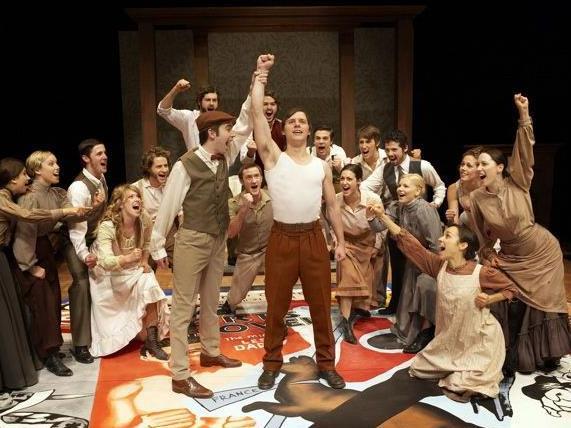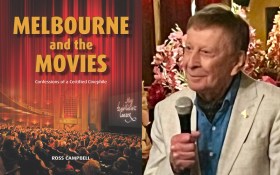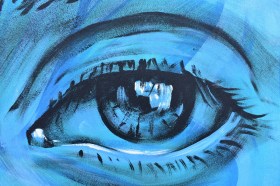Image: WAAPA
In a competitive studying environment, how can arts students make the most of their arts education. Australia’s leading arts institutions identify what makes a student stand out.
1. Be a team player
Working in collaboration is generally a staple of arts curriculum assessment, whether as part of a project or ensemble. Associate Head of School for Production and Design at WAAPA Leisa Landre-Ord said that working well in a team is a must-do for any arts student.
‘Yes you have to have the skills but it’s a person that works really well in a team. I think that’s what everybody looks for,’ said Landre-Ord. ‘It’s the students that really engages in the process. It’s the generosity, students that will work well within the team. That will support the other team members, when the chips are down.’
2. Go the extra mile
It is not always enough to do just what is asked, Dr Eve Klein the Convenor of Music at the University of New England said that attending scheduled classes and doing the required assessments is not enough and students get noticed when they go above and beyond what is expected.
‘Curiosity and the ability to understand how music connects to broader trends within communities are all necessary,’ said Klein. ‘Students entering music studies should seek every opportunity to develop this broader understanding of their art form and their role within it as an independent practitioner.’
3. Be hungry
Internal motivation is essential in a career where most emerging artists can expect a long haul with little in the way of early rewards. Lecturer in Musical Theatre at Actors College of Theatre and Television(ACTT) Tyran Parke said that having a real hunger for the industry is a vital ingredient for any budding arts student.
‘There are a lot of talented people but for me it’s always the people that have what I call a ‘monstrous hunger’. If you have a ‘monstrous hunger’ then that’s enough and they’ll find a way,’ said Parke.
4. Say yes to everything
In order to develop, grow and network, it can be essential to be as enthusiastic as possible in terms of taking on new projects and exploring different pathways. Jonathan Wald, Head of Film at the International Film School Sydney said that arts students should take up any offers that come their way.
‘In Australia, it’s very helpful for recent graduates to be able to take any opportunities that come to them, leaping into roles from DOP to special effects to data wrangling to assistant camera and back to cinematographer,’ said Wald. ‘Say yes to everything, remember how lucky you are to be able to study your passion, and cultivate a sense of gratitude and humility.’
5. Exude positivity
The attitude of any student can have an immense impact of how they are perceived and Landre-Ord from WAAPA said that a positive person with a can-do attitude is high on her list of desired attributes in any student.
‘For me personally, it’s the positivity. If I was going to employ anybody within a work environment that’s what I’d be looking for- a positive person,’ said Landre-Ord.
6. Be a story-teller
While the development of skills in any arts education is important, Parke from ACTT said that students should also promote and individualize themselves as story-tellers.
‘Whether it’s singing or dancing, the thing that underpins everything is storytellers. If you’re a good story-teller and that is a primary focus to you, then it doesn’t matter what discipline your doing that in. Ultimately it’s all about telling stories, whether through music or the spoken word or dancing,’ said Parke.
7. Show confidence
Gina Panebianco, Head of Education at National Gallery of Victoria(NGV) said that self-confidence is key to a successful arts education, taking inspiration from current exhibited fashion designer at NGV Jean Paul Gaultier.
‘We can take our lesson from Jean Paul Gaultier, you need to have confidence in yourself, to know that you can do things and achieve things as good as the next person,’ said Panebianco.
8. Look to the future
Think about the way the industry is evolving and evaluate where you may fit. Klein from UNE said that consideration of the future while studying shows initiative.
‘Learning how to identify and fill a niche within a creative community or context and’how your work is located contextually – the history of your art form and its intersection with other art forms, philosophies and cultures.’
CEO of the Australian Film, Television & Radio School Sandra Levy said learning should be about ‘future-proofing graduates for a changing and dynamic world’, with time spent studying as preparation for following their desired aspirations.
9. Show discipline
Dedication to the craft and commitment to learning and growing are vital characteristics for any student to ascend to top of the class, Parke from ACTT said a disciplined student will always persevere.
‘For me it’s a lot about discipline. A lot of people want to be in music theatre or the arts but don’t understand the discipline involved,’ said Parke.
Head of Songwriting at JMC Academy Shannon Brown also said that discipline is important, with students needing to ‘rehearse, rehearse, rehearse,’ in order to further their skills.
10. Ask Questions
To be both critical of others and oneself shows the ability to dive deeper and critically engage in a range of contexts, Panebianco from the NGV said that a curious student that asks questions is one characteristic that appeals to her.
‘From our own experience here and we have over 120,000 students and teachers on site every year, so we sort of a get a sense of students that always doing something different or doing really well,’ said Panebianco. ‘The students that stand out in terms of their own peers are the students who ask questions, who think about what they’ve said and what others are saying.’
This feature is part-two of our two-part education report by ArtsHub from Australia’s top tertiary educational institutions. Part-one explored ’10 tips for kickstarting a career in the arts’.
Participating tertiary institutions:
Actors College of Theatre & Television
Australian Film, Television & Radio School
JMC Academy
International Film School Sydney
University of New England
National Gallery of Victoria
Western Australian Academy of Performing Arts





